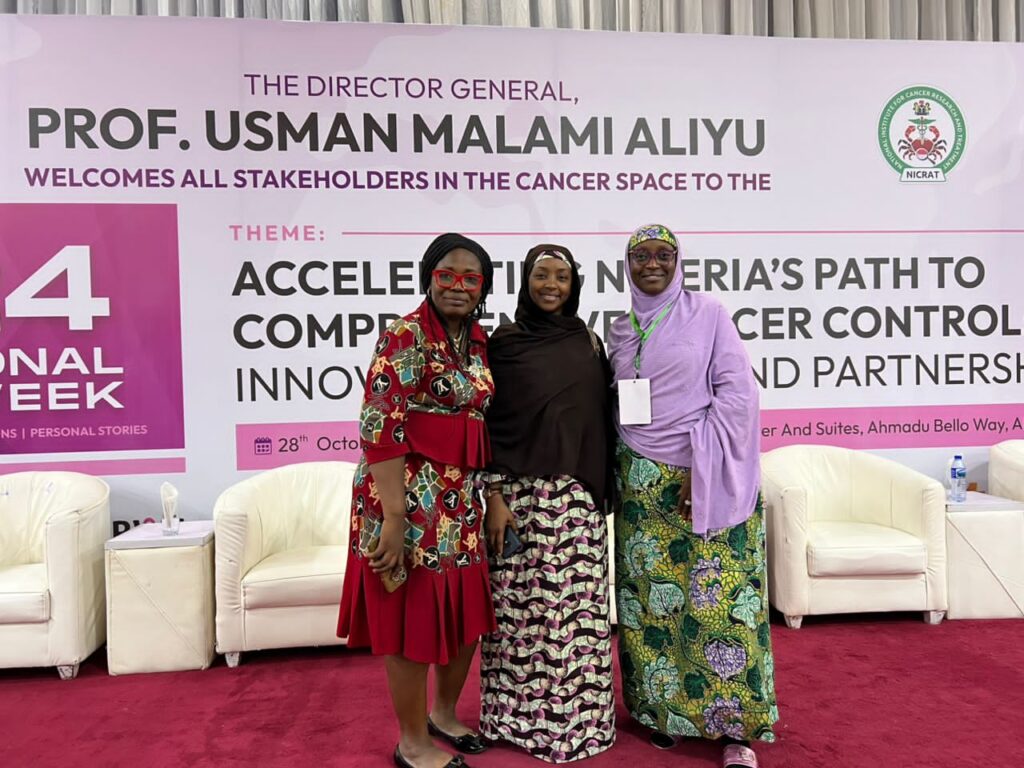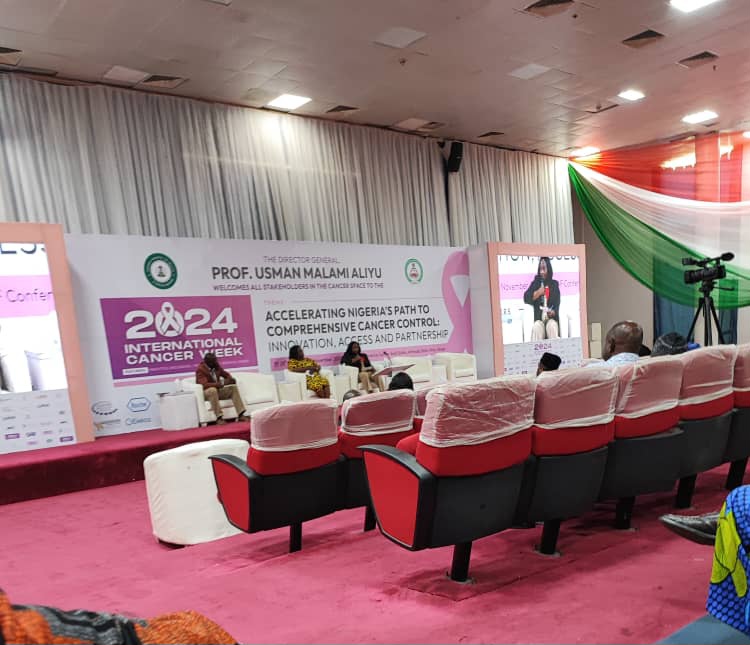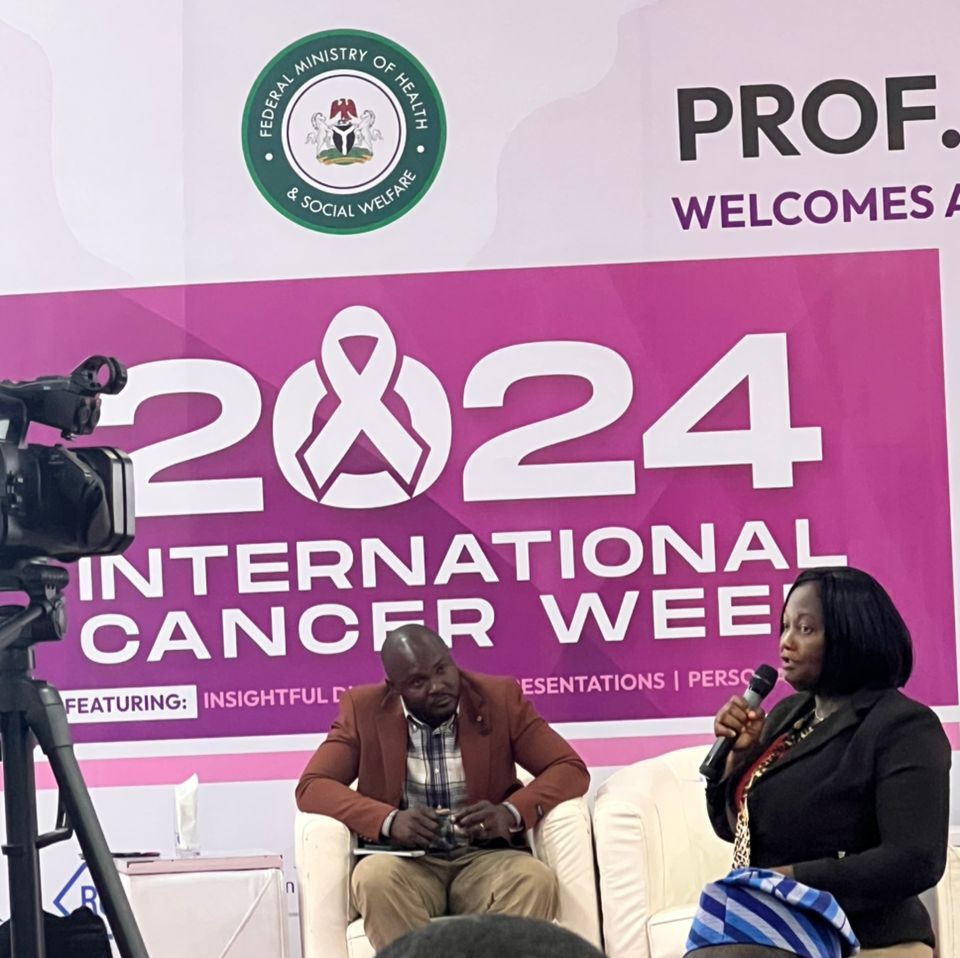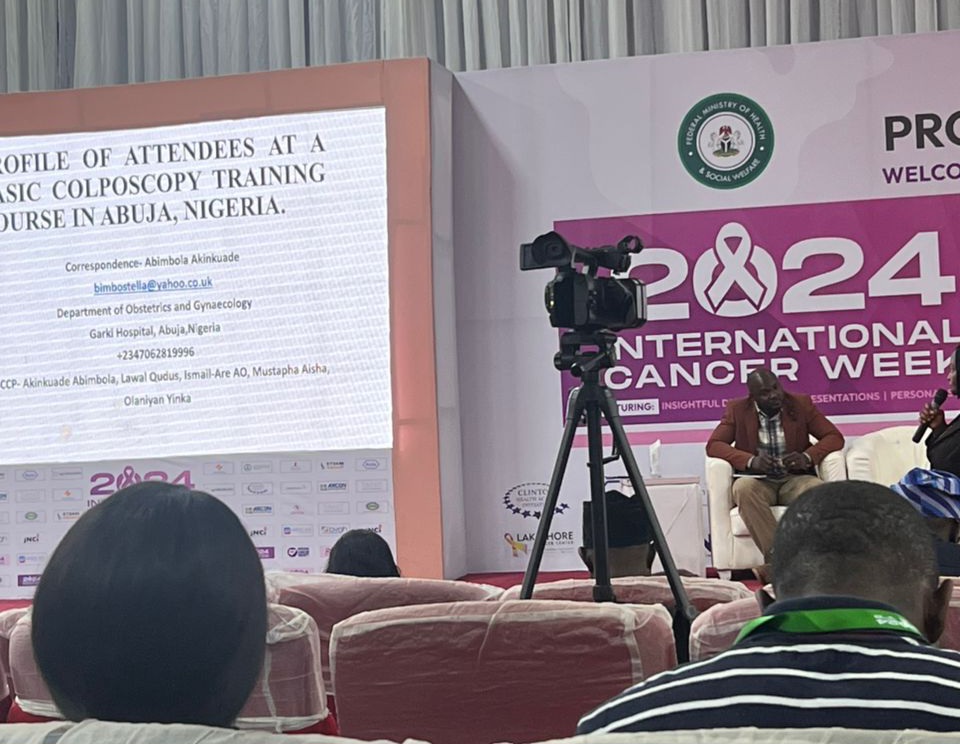2024 INTERNATIONAL CANCER WEEK
The Nigeria Society for Colposcopy and Cervical Pathology (NSCCP) with other stakeholders were at the 2024 International cancer week
Profile of attendees at a Basic colposcopy training course in Abuja
The program brought together 51 participants, primarily medical doctors, along with nurses, a civil servant, and a student. Attendees engaged in comprehensive sessions covering didactic lectures, reagent preparation, various colposcope models, and hands-on simulation with LEEP and thermocoagulators.
Training Objectives
– Assess the demographic and professional background of attendees
– Evaluate prior colposcopy exposure and experience
– Gauge access to colposcopy equipment across participants’ institutions
Methodology and Findings
An anonymous pre-course questionnaire was administered, gathering data on participants’ backgrounds, experience levels, and available resources in their practice settings. Key findings included:
– Over half of attendees had more than 10 years of experience in their medical fields.
– 83% had observed colposcopy procedures, with 66% having performed colposcopies, though only 2% had formal training.
– 22% of participants reported no access to colposcopy services in their facilities.
– Among the centers with colposcopic equipment, 55% had binocular colposcopes and 30% used monocular models.
The data, analyzed in Microsoft Excel, underscored the varying levels of exposure to colposcopy among attendees and highlighted the program’s success in expanding practical knowledge and technical capacity in cervical cancer diagnosis.
Conclusion
This training marks a significant step toward building a skilled colposcopy workforce across Nigeria, enhancing the country’s capacity to deliver cervical screening and early cancer detection services.
Outcome of colposcopy examinations by trainee Colposcopist at basic colposcopy training course
Introduction
Colposcopy plays a crucial role in triaging women with positive screenings for premalignant cervical disease, yet Nigeria faces a significant shortage of trained colposcopists, challenging efforts to reduce the country’s cervical disease burden. In response, the Nigeria Society for Colposcopy and Cervical Pathology (NSCCP) launched an intensive nationwide training program to equip healthcare providers with essential colposcopy skills.
Aim
This study aimed to document the outcomes of colposcopy examinations conducted by trainees during the basic training course.
Objectives
– To determine the prevalence of normal and abnormal colposcopic findings.
– To assess the accuracy of trainees’ colposcopic findings against trainers’ diagnoses.
– To compare the accuracy of clinical colposcopic diagnoses by trainees with histological findings.
Methodology
The evaluation included 50 trainee participants who performed colposcopic examinations on 63 women under trainer supervision. Trainees recorded their findings, which were matched with trainer diagnoses. Histology reports were reviewed for cases where biopsies were performed, while non-biopsy cases were corroborated by trainer assessment.
Results
Of the 63 colposcopies conducted:
– 73% (46/63) had normal findings.
– 5% (3/63) revealed low-grade lesions, 3.2% (2/63) high-grade lesions, 3.2% (2/63) inflammatory lesions, and 15.6% were deemed unsatisfactory.
– Trainee-trainer diagnostic accuracy was 90%.
– Histology was performed on nine cases: one case of condyloma acuminata, six cases of CIN 1, and one inadequate sample.
– “See and treat” procedures were applied in two cases.
– Concordance between histology and clinical colposcopy diagnosis by trainees was 77%.
Conclusion
The high rate of diagnostic accuracy observed between trainees and trainers highlights the effectiveness of the NSCCP’s training program in developing practical colposcopy skills. This initiative represents a significant advance in expanding the colposcopy workforce, ultimately contributing to more robust cervical disease triage and treatment capabilities across Nigeria.





